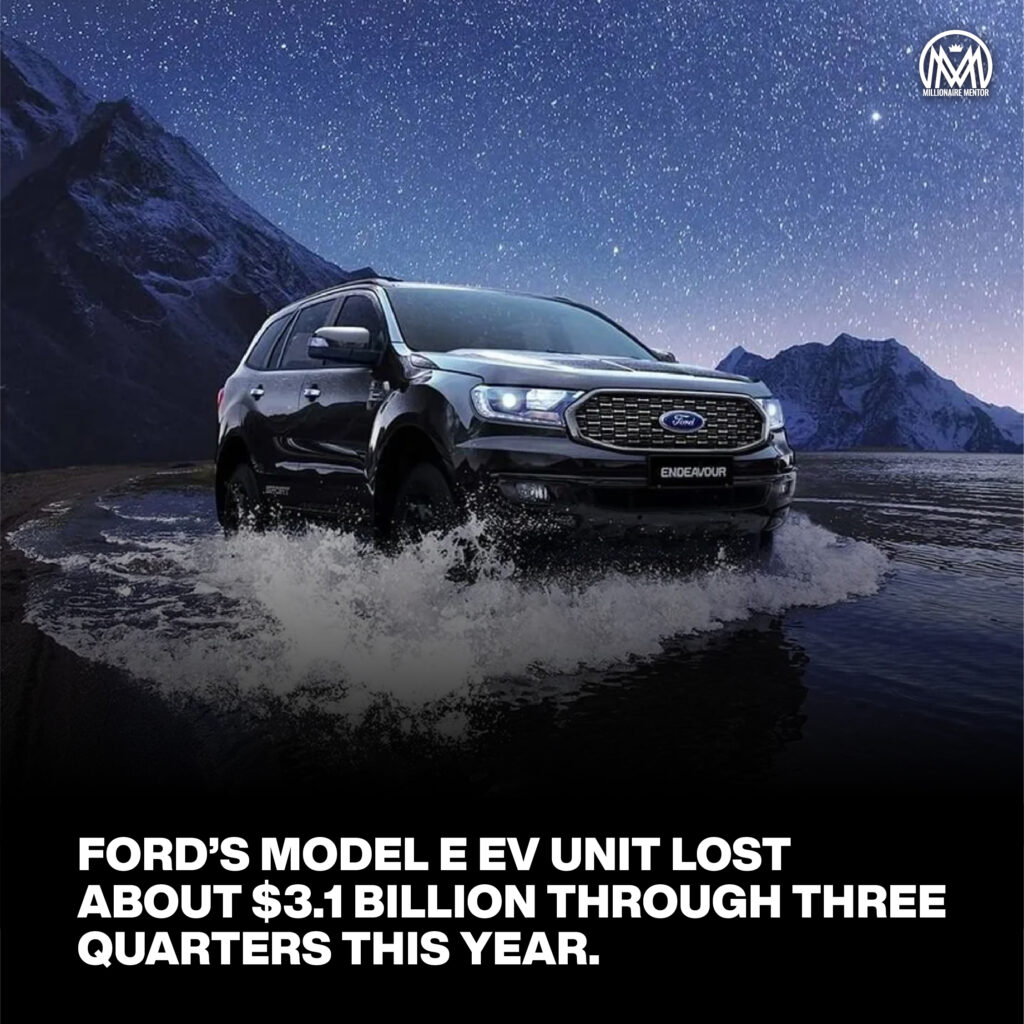The automotive industry is at a crossroads as it transitions from traditional internal combustion engines to electric vehicles (EVs). In recent years, automakers like Ford have been making significant investments in electrification to meet the growing demand for sustainable transportation. However, as market dynamics continue to shift, Ford has recently announced a delay in its planned $12 billion EV investment due to changing consumer preferences and heightened caution among potential buyers.
Ford Delays $12B EV Investment as Buyers Turn Cautious.
The decision to postpone a substantial EV investment is not one taken lightly by an industry giant like Ford. The American automaker had initially planned to accelerate its electric vehicle production and expand its product lineup, including the release of the highly anticipated all-electric Ford Mustang Mach-E and the Ford F-150 Lightning. Nevertheless, shifting market dynamics have prompted a more cautious approach.
Consumer Caution.
One of the primary reasons behind Ford’s decision to delay its investment in electric vehicles is consumer caution. Despite the increasing awareness and interest in electric vehicles, potential buyers have shown a degree of reluctance when it comes to fully embracing EV technology. Several factors contribute to this caution:
- Range Anxiety: Consumers remain concerned about the range of electric vehicles and the availability of charging infrastructure. Although charging networks are expanding, there is still a perception that electric vehicles might not be suitable for long-distance travel, which hampers widespread adoption.
- Purchase Price: Electric vehicles tend to have a higher upfront purchase price compared to traditional internal combustion engine vehicles. While the total cost of ownership may be lower over time due to lower operating and maintenance costs, the initial investment can be a deterrent for cost-conscious buyers.
- Infrastructure Challenges: Widespread adoption of electric vehicles also depends on the availability of charging infrastructure. Rural areas and regions with limited charging options may not yet be ready for a complete transition to EVs.
- Uncertainty About Technology: Some consumers are still skeptical about the long-term reliability and performance of electric vehicles, particularly in extreme weather conditions. Concerns about battery degradation and replacement costs also play a role in their caution.
Global Economic Uncertainty.
Ford’s decision to delay its EV investment, also influenced by broader economic and market conditions. In recent years, there has been increasing economic uncertainty due to factors such as the COVID-19 pandemic, supply chain disruptions, and geopolitical tensions. These uncertainties have caused automakers to reassess their financial commitments and priorities.
Government Policies and Incentives.
Government policies and incentives play a crucial role in shaping the electric vehicle market. Ford and other automakers are closely monitoring legislative changes that can impact their EV investment decisions. Changes in incentives, emission standards, and trade regulations can either encourage or discourage automakers from investing in electric vehicles.
Ford’s Response.
Ford’s decision to delay its $12 billion investment in electric vehicles is not a complete withdrawal from the EV market. Instead, the company is taking a more cautious and adaptive approach. Ford is likely to reassess its EV strategy, focus on enhancing existing models, and closely monitor market trends and consumer preferences. The automaker remains committed to its electrification goals but wants to ensure that it makes investments aligned with market demand.
The decision by Ford to delay its $12 billion EV investment that reflects the complex and evolving landscape of the automotive industry. Consumer caution, global economic uncertainty, and government policies are all influencing the company’s strategic choices. It is a reminder that while the shift to electric vehicles is inevitable, it may take longer than initially anticipated. Ford, like other automakers, will need to carefully navigate these challenges while continuing to develop innovative and compelling electric vehicles that meet the needs of a diverse customer base.


Trending News Articles
 David Icke EXPOSING The Elite’s 2030 Plan For Total Control Over Usby Jason Stone●November 4, 2022
David Icke EXPOSING The Elite’s 2030 Plan For Total Control Over Usby Jason Stone●November 4, 2022 “I Was Told NOT To Talk About This!” | Jordan Petersonby Jason Stone●April 23, 2022
“I Was Told NOT To Talk About This!” | Jordan Petersonby Jason Stone●April 23, 2022 Jordan Peterson’s Most SHOCKING Revelation About Germany’s Energy Crisisby Jason Stone●January 9, 2023
Jordan Peterson’s Most SHOCKING Revelation About Germany’s Energy Crisisby Jason Stone●January 9, 2023 American Tower to Sell India Business in $2.5 Billion Dealby Jason Stone●January 5, 2024
American Tower to Sell India Business in $2.5 Billion Dealby Jason Stone●January 5, 2024





